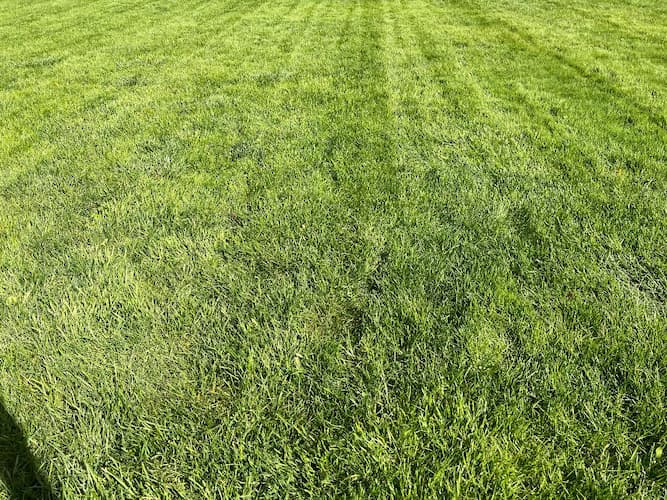Grass Clippings Organic Compost

About Grass Clippings
Your lawn grasses are high in nitrogen and other important plant nutrients. Your lawnmower has already chopped it up into small pieces, which aids in a speedy decomposition. Grass clippings should never be sent to the trash, where it only takes up space. There are two places where they should go: Using a mulcher mower, they can go directly back to your lawn, to help feed it. Or, they can be composted for later use in your vegetable, herb, and flower gardens.
Grass clippings from your lawn make great organic compost. At least it can be. In order to use lawn clippings as organic compost, it is important, and should be obvious, that you do not put any chemical or other non-organic fertilizers on your lawn. And, that’s the problem, as the majority of homeowners put chemical fertilizers, weed killers, and insecticides on their lawns, to create a lush, green carpet of weed-free and insect-free lawns.
If you do use chemicals on your lawn, do not use grass clippings as compost in your vegetable garden. Even if you wait several weeks after putting chemicals on your lawn, residual chemicals can still be in the grass clippings. Use chemically treated grass clippings in your flower gardens, and not around vegetables or herbs, that you and your family will eat.
Untreated Grass Clippings Make Great Compost
Because grass is rich in nitrogen, it is a great “starter” to a compost pile, helping the decomposition action to get started. Do not stack large amounts of grass in a pile to decompose. A big pile comprised solely of grass clippings quickly becomes matted and gooey, producing a strong ammonia odor. In making compost from grass clippings, it needs to be mixed with other “brown” compostable materials. The proper mixture is 60-80% green material. Much more on Composting
You can also use grass clippings as a mulch. Spread them out thinly on a space in the garden. Let them dry out for a few days. Take the dried clippings, and spread them around plants, an inch or two thick. Do not let them touch the stems of plants.
Related Articles
People who like this article will also like:
About the USDA – Among other things, the USDA monitors and promotes organic gardening and organic produce.
More on Organic Gardening – The more you practice organic gardening, the healthier the food you eat.
Garden Hobbies – There are dozens of holidays to celebrate our garden hobby. So, Let’s celebrate all of them.
Please support our site. Shop for:
- rmmatthews100@hotmail.com
- 585-721-6528
- Rochester, NY
©1999-2024 GardenersNet.Com, All Rights Reserved

